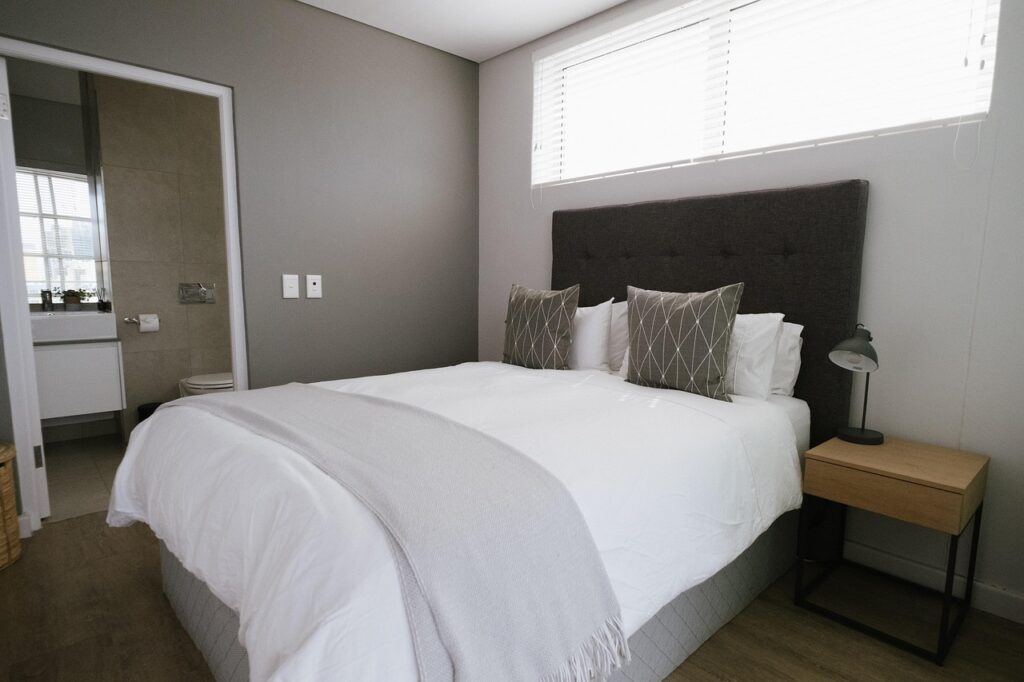A key component of success in the fiercely competitive hospitality sector is efficient hotel revenue management. It is no longer sufficient for hotels to merely fill rooms due to the increasing impact of online travel agencies (OTAs), dynamic pricing strategies, and changing client expectations. Selling the right room to the right guest at the right time for the right price through the right channel is the true problem. Hotel revenue management can help with it.
The idea of hotel revenue management is examined in this blog, along with its significance and methods for increasing revenue, occupancy, and profitability.
What is Hotel Revenue Management?
Optimizing price, inventory, and distribution channels is the goal of hotel revenue management, a data-driven approach. Selling the right room to the right consumer at the right time for the right price is the aim.
At its core, revenue management involves:
- Forecasting demand
- Segmenting customers
- Dynamic pricing
- Managing distribution channels
- Analyzing market trends and competition
Hotel management may make well-informed decisions that match room rates and availability with the state of the market by utilizing historical data and predictive analytics.
Why Hotel Revenue Management is Important
Effective hotel revenue management offers several key benefits:
1. Increased Profitability
The goal is to maximize revenue per available room (RevPAR), not only fill rooms. Finding the most successful pricing methods is aided by revenue management.
2. Improved Forecasting
Hotels may better manage their workforce, marketing, and inventory by predicting future demand by examining market trends and historical performance.
3. Better Inventory Utilization
Revenue management assists in effectively allocating rooms through a variety of channels while preventing situations where there are too many or too few reservations.
4. Competitive Advantage
Effective revenue management enables hotels to outperform rivals in a crowded market by promptly adjusting to shifting circumstance

.
Key Metrics in Hotel Revenue Management
Hotels must track and evaluate key performance indicators (KPIs) in order to manage revenue successfully. Among the most important are:
- ADR (Average Daily Rate): Total room revenue divided by the number of rooms sold.
- RevPAR (Revenue Per Available Room): ADR multiplied by the occupancy rate.
- Occupancy Rate: The percentage of available rooms that are occupied over a specific period.
- TRevPAR (Total Revenue Per Available Room): Includes all revenue, not just room rates.
- GOPPAR (Gross Operating Profit Per Available Room): Measures the hotel’s profitability.
These metrics help in tracking performance, identifying trends, and adjusting strategies accordingly.
Core Principles of Hotel Revenue Management
Let’s dissect the fundamental ideas that underpin efficient revenue management.
1. Segmentation
Knowing your clientele is essential. Every traveler—business, leisure, group, and last-minute—has distinct requirements and price sensitivity.
Guest segmentation enables appropriate pricing and marketing methods.
2. Forecasting
Better pricing and inventory decisions are made possible by accurate occupancy and revenue predictions. To predict demand, look at past data, booking patterns, regional happenings, and economic indicators.
3. Price Optimization
Hotels can instantly modify room rates based on availability and demand thanks to dynamic pricing. For increased accuracy, this procedure can be automated using algorithms and revenue management systems (RMS).
4. Channel Management
Travel agencies, corporate partners, direct booking websites, and OTAs are some of the methods via which rooms are marketed. Strategic channel management maximizes income and lowers commission expenses.
Revenue Management Strategies for Hotels
Here are some tried-and-true methods for effective hotel revenue management to put theory into practice:
1. Adopt Dynamic Pricing
Use a dynamic pricing approach that varies according to demand, seasonality, local events, and rival pricing instead of setting fixed prices.
For instance, raise prices when demand spikes during a significant festival or conference in the community.
2. Implement Length of Stay (LOS) Restrictions
By demanding a minimum stay during busy times or providing incentives for reservations longer than one night, you can encourage guests to stay longer. This enhances occupancy and lowers turnover expenses.
3. Upselling and Cross-Selling
Teach your employees to cross-sell other services like dinner packages, spa treatments, and airport transfers, as well as upsell room upgrades. Revenue per guest is greatly increased by these extras.
4. Optimize Distribution Channels
Increase the number of direct reservations made via your website to counterbalance your reliance on OTAs, which impose hefty charges. To encourage direct reservations, provide special benefits or reduced prices.
5. Use Technology and RMS Tools
Artificial intelligence and machine learning are used by contemporary revenue management systems (RMS) to automate pricing plans and data analysis. Among the top tools are RoomPriceGenie, IDeaS, and Duetto.
6. Monitor Competitor Pricing
Use rate shopper tools to stay competitive by keeping an eye on rivals’ prices in real-time. This aids in putting your prices in an appealing market position.
7. Focus on Reviews and Reputation
Booking decisions are influenced by internet reviews. Premium pricing may be justified by a higher ranking on websites like TripAdvisor or Google. Make sure you have a solid reputation management plan.
How Small and Independent Hotels Can Benefit
A lot of small and boutique hotels believe that big chains are the only ones that use revenue management. It’s a myth. Smaller properties can use fundamental revenue management strategies even without a large budget:
- Use Excel or basic forecasting tools.
- Track competitor pricing manually
- Focus on high-margin services like F&B or spa.
- Partner with local events or businesses to boost off-peak bookings
Independent hotels can significantly increase profitability by comprehending consumer behavior and implementing a flexible pricing strategy.
Challenges in Hotel Revenue Management
Despite its advantages, there may be difficulties in putting a revenue management strategy into practice:
1. Data Overload
Analyzing massive amounts of data might be daunting if you don’t have the right tools.
2. Lack of Skilled Staff
Finding qualified revenue managers or analysts may be difficult for smaller hotels.
3. OTA Dependency
Because of the hefty commission fees, a heavy reliance on OTAs lowers profitability.
4. Market Volatility
Natural catastrophes and pandemics are examples of sudden events that might alter demand projections and necessitate quick responses.
The secret is to stay adaptable and keep improving your tactics.
Future Trends in Hotel Revenue Management
The hotel business is changing quickly. The following new developments will influence hotel revenue management in the future:
1. AI and Machine Learning
AI is being used by sophisticated RMS systems to produce extremely accurate demand projections and pricing decisions with little assistance from humans.
2. Personalized Pricing
Personalized pricing models based on past visits, loyalty status, and behavior are starting to be implemented by hotels.
3. Total Revenue Management (TRM)
To optimize the hotel’s overall profitability, TRM takes into account all income sources, including food and beverage, spa services, events, etc., rather than just rooms.
4. Sustainability and Green Pricing
Eco-aware travelers might be prepared to pay more for hotels that practice sustainability. Encouraging green activities can improve price flexibility and business image.
Conclusion
In the highly competitive hospitality industry of today, hotel revenue management is no longer an option—it is now essential. Hotels may increase income and enhance the visitor experience by utilizing data, implementing dynamic pricing methods, and streamlining distribution networks.
Understanding your consumers, adjusting to market changes, and making well-informed decisions are the same fundamentals whether you’re running a small hotel or a large chain. Gaining proficiency in revenue management is essential for hotel profitability in the future.



